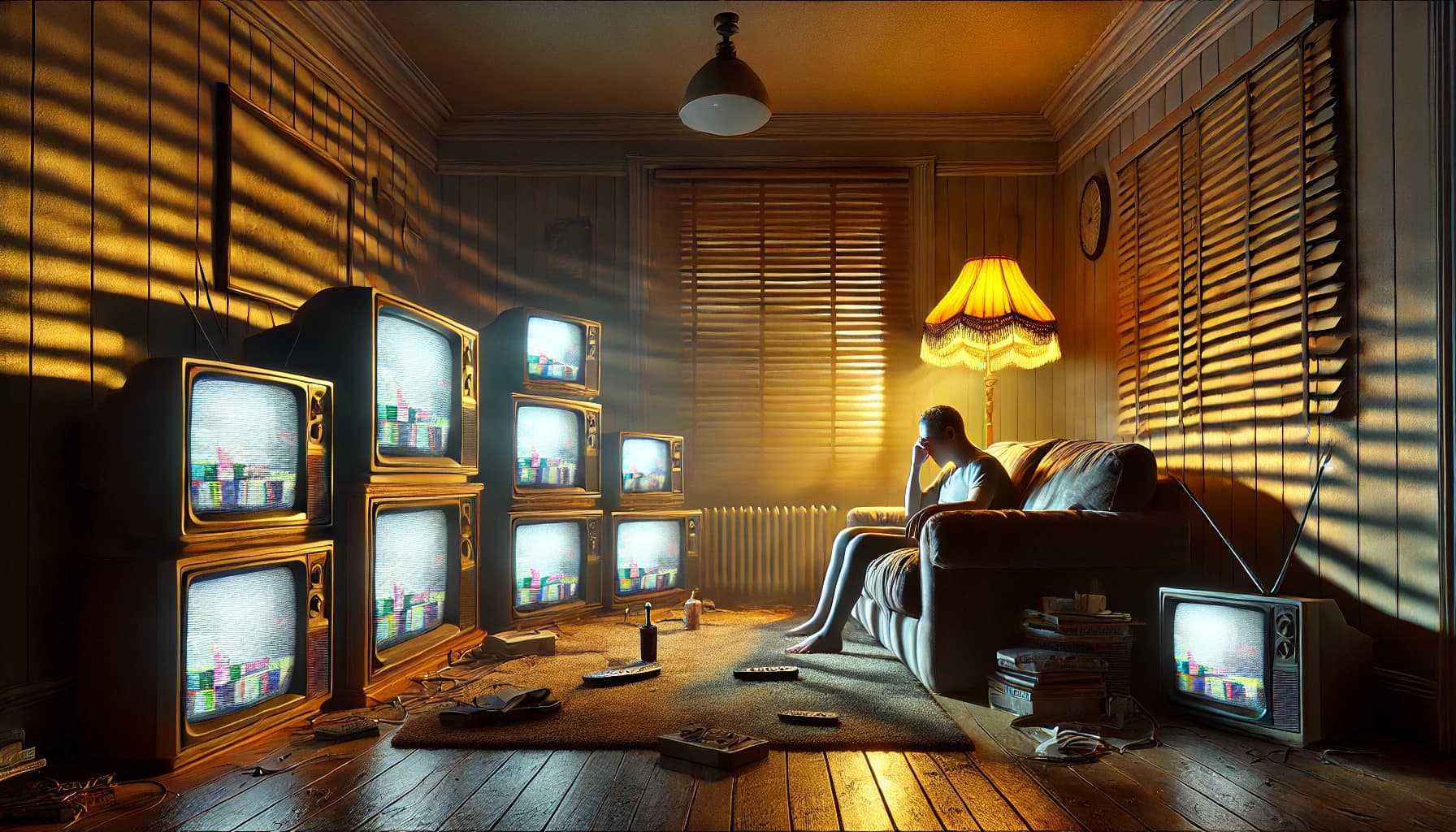ADHD Anxiety and Depression: Frequent Companions.
Living with ADHD is like trying to watch three different TV channels at once without a remote control. It’s chaotic, noisy, and impossible to focus. Now, throw anxiety and depression into the mix, and it’s like the power cuts out, leaving you in the dark with all the static. ADHD, anxiety and depression often form an overwhelming trio, each amplifying the other’s challenges in a constant feedback loop. Let’s explore how these comorbid conditions tag along with ADHD, why they’re such persistent guests, and how to show them the door (or at least keep them from hogging the remote).
ADHD and Anxiety: The Overthinking Duo
How Do They Interact?
- Breaking the Cycle: When anxiety and ADHD feed off each other, it feels like running on a treadmill that someone’s turned up to max speed. One way to slow it down is to list out specific triggers. Is it deadlines? Social settings? Pinpointing the “why” lets you focus on realistic solutions instead of letting your brain play “Guess the Worry.”
- Actionable Tip: Keep a “worry journal.” Every time a thought spirals, jot it down, set a timer for 5 minutes, and once the timer dings, let it go. It’s like speed-dating your own brain, quick, focused, and no overthinking allowed.
What Can Help?
Unlock peak brain performance with science-backed biohacks. Join free now & get your guide for just £4.99 (45% off)!

- Mindfulness Exercises: If meditation feels like sitting in a quiet room waiting to fail, start with sensory mindfulness. Hold a cold drink, feel the condensation, and take a sip while noticing the taste. It grounds your ADHD brain without asking it to stop thinking entirely. Pair it with magnesium supplements to further reduce stress and promote calm.
- CBT with a Twist: Some therapists now incorporate ADHD-specific tweaks into cognitive-behavioural therapy, like breaking thoughts into bite-sized chunks instead of tackling the whole overthinking mountain at once.
- High-Energy Exercise: Think boxing or dance, activities where your ADHD brain has no choice but to focus. Not into the gym? A daily 10-minute dance party in your kitchen works just as well. Also add B vitamins into your wellness journey, they help combat energy dips and boost mental clarity.
ADHD and Depression: The Unwelcome Third Wheel
How Do They Interact?
- The Science of Small Wins: Did you know that completing even the smallest task triggers a dopamine release? That’s why making the bed or taking a shower feels like a massive victory during depressive episodes. Write a list of “tiny tasks” that take less than 5 minutes and tackle one each day. It’s like feeding your brain dopamine snacks.
- Why Energy Matters: Depression and ADHD both sap energy, and let’s be honest, your brain and body are not on speaking terms during a slump. Try low-energy activities like listening to an audiobook or a podcast. You don’t have to be productive, just entertained.
What Can Help?
- Structure that Sticks: Most advice says “create a routine,” but let’s dig deeper. Use a visual schedule with time blocks for rest, activities, and non-negotiable self-care. Colour-code it if you’re feeling fancy, it’s like an ADHD-friendly treasure map.
- Connection Beyond Therapy: Therapists are amazing, but even peer support groups for ADHD and depression can feel like a lightbulb moment when you hear, “Wait, you feel that too?” Find local groups or online spaces where you can vent, share strategies, or just feel less alone. How about joining our forums and talking to others or even specialists?
Managing the ADHD-Anxiety-Depression Trifecta
So, you’ve got ADHD, anxiety, and depression. Congratulations, you’ve unlocked the bonus level no one asked for! But don’t worry, this trifecta may be tricky, but it’s not unbeatable. Here’s how to take back control, one manageable step at a time:
- Sleep like your life depends on it (because it does): Poor sleep makes ADHD, anxiety, and depression worse, turning your brain into a malfunctioning jukebox stuck on the same frustrating tune. Stick to a sleep routine like it’s your favourite Netflix show, same time, same place, every night. And yes, scrolling TikTok at 2am is not part of the plan.
- Fuel your brain like a pro: Think salmon, spinach, and walnuts, not just because they sound fancy, but because they’re packed with nutrients your brain loves. Omega-3 supplements are a great backup for those nights when your “cooking” involves cereal and a spoon.
- Break tasks into bite-sized chunks: Got a to-do list longer than your favourite crime series? Break it down. Tackling one thing at a time is like hitting the “skip intro” button on overwhelm.
- Get your body moving: Whether it’s a full workout or a kitchen dance party (no judgement), exercise releases endorphins. Pair this with Magnesium to help relax your nervous system post-workout.
- Master the art of “no”: Overcommitting is a surefire way to burn out faster than a cheap candle. Politely decline or, if necessary, channel your inner diva and deliver a dramatic “Not today, thanks!”
Remember, managing this trifecta is a marathon, not a sprint. Some days will feel easier than others, but the key is consistency and self-compassion. You’ve got this, and if not today, there’s always tomorrow (after a good night’s sleep).
When to Seek Help
If you’re finding it hard to function day-to-day, it’s time to talk to a professional. Whether it’s therapy, medication, or lifestyle changes, there’s no shame in getting support. ADHD, anxiety, and depression are tough enough solo; no one expects you to tackle all three without backup.
Join the Herbal Biohacker Community
At Herbal Biohacker, we’re all about creating a safe space for neurodivergent minds to share, learn, and grow. Join our community to connect with others, find tips that work for you, and discover the best natural approaches to managing ADHD and its companions.







